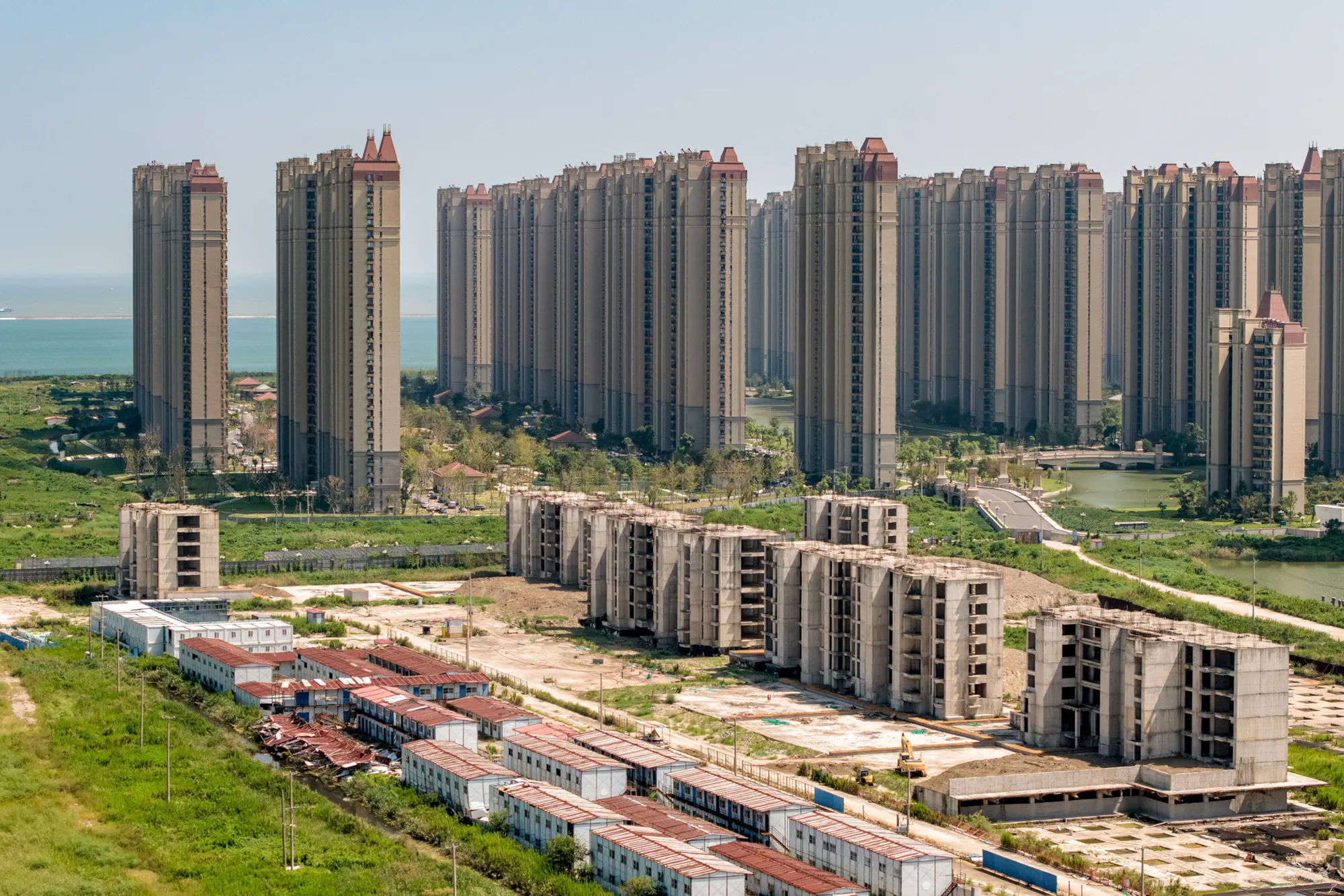From Bloomberg, October 20:

Many foreign investors are stuck with real estate assets that are increasingly difficult to sell.
International investors who poured billions of dollars into China real estate are increasingly looking to sell their properties at steep losses, threatening more pain for a sector that has weighed heavily on Asia’s largest economy.
Since late 2024, investment managers including BlackRock Inc. and Carlyle Group have offloaded commercial buildings in the country that sold for far less than what they originally paid, causing banks that financed the assets to lose money as well. More global institutions are looking to divest their Chinese properties, said dealmakers and bankers who asked not to be identified discussing private information. HSBC Holdings Plc, Standard Chartered Plc and other lenders have also warned of higher defaults on their China real estate loans.
Foreign property buyers invested close to $140 billion into office towers, warehouses, shopping malls and data centers in China in the last 15 years, according to data compiled by MSCI Real Capital Analytics. Investors thought they would profit from a long-lasting surge in demand from businesses looking for space, but that turned out to be a miscalculation. An unprecedented supply glut is causing rents to fall and values of many properties to tumble, in some cases to below prices seen a decade ago.
Distressed sales of China commercial real estate assets totaled 114 billion yuan ($16 billion) over 2023 and 2024, and made up a record 22% of total transactions last year, according to a report by Bloomberg Intelligence. A distressed sale occurs when there is a loan default or when a seller loses control of an asset.
The problem now is that the longer property owners wait to sell out, the bigger their losses are likely to become. Capital values, or the estimated market values, of Beijing and Shanghai offices — which make up a large chunk of foreigners’ real estate purchases — have plunged at least 40% from 2019, according to investors and bankers actively involved in deals.***Office vacancies in major Chinese metropolitan cities are now among the world’s highest, ranging from 20% to more than 40%. China’s deflationary environment and higher US tariffs are weighing on the economy, and real estate consultancies and economists expect it to take years for the excess supply of commercial buildings to be absorbed, before any rebound can take hold.“Foreign investors are stuck with their investment properties in China,” said Patrick Wong, a senior analyst covering Asia Pacific real estate at Bloomberg Intelligence. He said that in order to exit, their best bet is to find local buyers — such as cash-rich Chinese state-owned enterprises — for the assets, “but even SOEs are waiting for signs of improvement in the property market.”
Logistics Slowdown
Capitalization rates, an investing metric that measures expected returns from properties based on their market value and current income, are climbing in China for offices and logistics properties, showing the risk for investors is increasing.Many foreign investors had bought warehouses and other storage facilities in the country in anticipation of sustained growth in e-commerce and demand from food producers and manufacturers. That industry is now also grappling with too much space....
....MUCH MORE